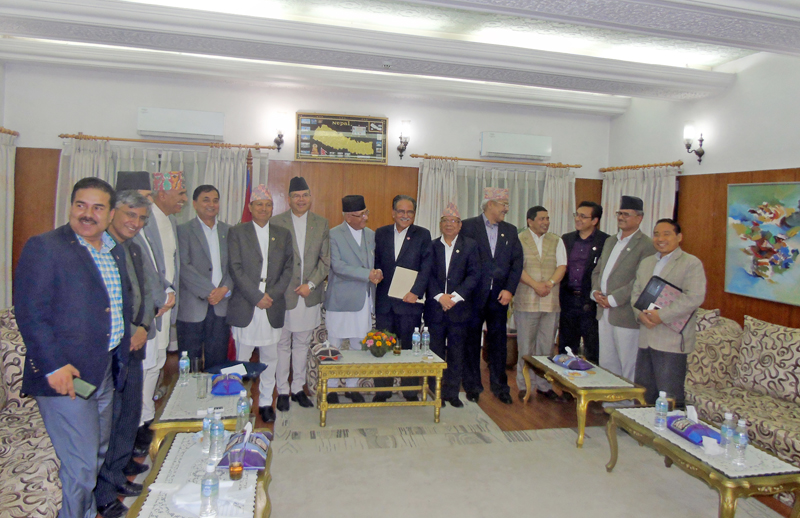International community concerned about 9-point pact
Kathmandu, May 25
The international community today urged all stakeholders in Nepal to respect the country’s basic national and international human rights obligations while addressing outstanding issues of the peace process.
The international community’s advice has come at a time when the government is revising the existing transitional justice law in view of the recent nine-point deal between the ruling CPN-UML and CPN Maoist Centre.
“We urge all parties in Nepal, including non-state actors, to respect international human rights principles, standards and norms at all times,” read a joint statement issued on behalf of the United Nations in Nepal, the embassies of Australia, Denmark, Finland, France, Germany, Norway, the United Kingdom, the US, Switzerland and the delegation of the EU.
The statement adds, “We encourage all parties to ensure that mechanisms to provide justice to the victims of the conflict meet Nepal’s international and national legal obligations – including but not limited to those determined by the February 2015 Supreme Court ruling.”
Prime Minister and CPN-UML Chair KP Sharma Oli and chairman of erstwhile UCPN-Maoist Pushpa Kamal Dahal had sealed the nine-point deal on May 5 that included a provision to immediately initiate the process of withdrawing or giving clemency on insurgency-era cases and other politically-motivated cases”.
In view of the agreement, the government is busy revising the Act on Truth and Reconciliation Commission and the Commission on Investigation of Enforced Disappeared Persons, according to official sources.
The international community’s statement reiterated that conflict victims should be able to participate in the process of lodging complaints freely and that they were entitled to receive full protection to pursue effective remedies and justice without any form of pressure or intimidation.
Earlier in February, the United Nations had said it couldn’t lend support to TRC and CIEDP due to lack of authority given to these instruments to ensure justice to conflict victims and book perpetrators of serious human rights violations.
The Office of High Commissioner for Human Rights had stated that neither these bodies were formed in accordance with the international standards nor did the Government of Nepal comply with its earlier advice to revise the law as per Nepal’s own international obligations.
The international community’s fresh call comes at a time when victims are allegedly being barred from filing complaints freely and are facing threats from the perpetrators both Maoists and the state security forces.
TRC and CIEDP officials observed that since the nine-point pact was inked, victims had not been lodging complaints against perpetrators of rights violation.
The twin transitional justice bodies have been receiving complaints from the victims of the decade-long insurgency since mid-April.






